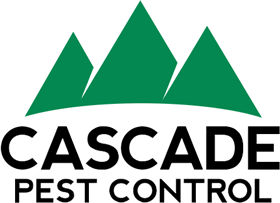Author: Kurt Treftz, Cascade Pest Control
When you see a trail of tiny, industrious pests in your house, you might be quick to rush to Google to take care of the problem. But do those DIY Ant Treatments really work?
Let’s dive into some common DIY ant solutions and provide a realistic, expert view on whether they will work and if they are safe.
Insecticides for DIY Ant Killers
There are a few DIY ant treatments that you can use that will actually kill the ants. However, you might not have these items on hand and some of them are dangerous to humans as well. Use these insecticide ant solutions with caution. Or call the ant control experts at Cascade Pest Control.
Diatomaceous earth
This type of “soil” is made from the fossilized remains of aquatic organisms. It works, not by poisoning the ants, but by absorbing their oils and drying them out. It does require that you know where the ants are coming from. (Sprinkling around the actual ant hill is most effective).
Often, DIY ant killer options are attractive because they claim to be more environmentally-friendly or safe. However, you must take care when sprinkling diatomaceous earth because it is an irritant and it shouldn’t be breathed in.
Boiling water
This rather medieval DIY ant killer method involves actually pouring boiling water into an ant hill. It kills the ants it contacts. Take care transporting and pouring the boil water so you don’t injury yourself.
However, this method doesn’t kill the whole colony. So, it is recommended that you pour it in as many entrances to the hill as you can find. While this method will kill some ants, it doesn’t do the job completely and leaves plenty of room for error or injury.
Boric Acid & Borax
Boric acid & borax are two chemicals (different compounds, similar sounding names) which both work to poison the ants. Boric acid erodes the ant’s outer shells and stomachs. It kills the worker ants and their queen. Both boric acid and borax can be mixed with a sugar solution and then used to saturate cotton balls that can be left around the house where ants are seen.
The problem with both of these chemicals is that they are hazardous and should be kept away from pets and children. So, it becomes problematic when you want to leave them around the house. Also, boric acid can take up to 3 weeks to work.
Cornstarch / Flour
Another DIY way to kill ants is to smother them with cornstarch or flour. This method involves covering the ants in powder. Then you can add water until the ants are encased in a plaster. You can then wipe them up. Or you can smother them with the cornstarch and vacuum them up (being sure to dispose of the sealed vacuum bag outdoors immediately).
This is a bit ineffective as it requires a lot of work if you only have an ant or two. And it is decidedly messy.
DIY Ant Repellants
Another option you can employ around your home are DIY ant repellants. You might not be able to kill the ants outright, but do some of these methods work to keep ants at bay?
Pheromone scent removal
Some ants leave a pheromone trail that works to attract other ants and lead them to food and good shelter. Interrupting this scent trail can prevent ants from coming back. Mix glass cleaner and a liquid detergent in a clean spray bottle and spray wherever you see ants congregating. Alternatively, you can use white vinegar & water in a 1-to1 ratio and spray that. The smell lingers for ants (even though it doesn’t linger long for most humans).
Of course, this assumes that you have seen ants congregating. While it is always a good idea to keep kitchens clean, you might not want this coating on all the surfaces in your home. It also has to be repeated often.
Oils or spices
Ground pepper (red or black), peppermint oil, tea tree oil, lemon eucalyptus oil, cinnamon (repels and exterminates), and lemon have all been found to repel those pesky insects. Sprinkle around doors and cabinets, spray on window sills or even leave whole in the cupboards. Many of these known, common household DIY ant repellants may keep ants away.
However, they often need to be changed frequently and don’t contribute to a tidy house. In addition, little hands (and pet paws) can get into these and, while they are non-toxic, make a mess.
Coffee Grounds
Another natural DIY repellent for ants is coffee grounds. You can put your freshly used coffee ground on a disposable surface (like an index card) and place them around your house in area where ants converge.
Besides leaving grounds all over your house, the coffee will lose its potency over time so it will need to be changed frequently. (Or just skipped altogether).
If you’ve tried your hand at DIY ant treatments and still find you are sharing too much space with ants, contact the ant control experts at Cascade Pest Control. They will be happy to help.
